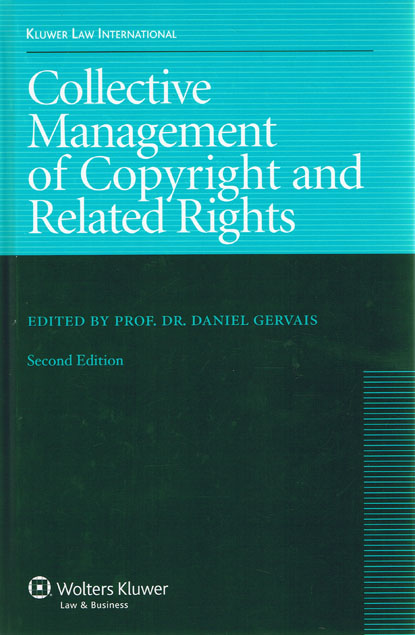
In the course of the last decade, collective management organizations (CMOs) have become the nerve centres of copyright licensing in virtually every country. Their expertise and knowledge of copyright law and management have proven essential to make copyright work in the digital age. This book, an extensively revised and updated edition of the only major work on the legal status of CMOs, offers an in-depth analysis of the various operating CMO models, their rights and obligations vis-à-vis both users and members, acquisition of legal authority to license, and (most important) the rights to license digital uses of protected material and build (or improve current) information systems to deal with ever more complex rights management and licensing tasks. All the chapters have been updated since the 2005 edition, and a new chapter on multiterritorial licensing has been added.
Factors considered include the following:
Part I presents a number of horizontal issues that affect collective management in almost every country. Part II is divided on a geographical basis, focusing on systems representative of the principal models applied in various countries and regions. Each countryspecific or region-specific chapter provides a historical overview and a presentation of existing CMOs and their activities, gives financial information where available, describes how CMOs are supervised or controlled by legislation, and offers thoughts about the challenges facing CMOs in the country or region concerned. Many of these national and regional commentaries are the only such information sources available in English.
Whatever the future of copyright holds, it is clear that users will continue to want access and the ability to reuse material lawfully, and authors and other rightsholders will want to ensure that they can put some reasonable limits on those uses. CMOs are sure to be critical intermediaries in this process. The second edition of this important resource, with its key insights into the changing nature of collective management, will be of immeasurable value to all concerned with shaping policy towards collective management or working with the ever more complex legal issues arising in digital age copyright matters.